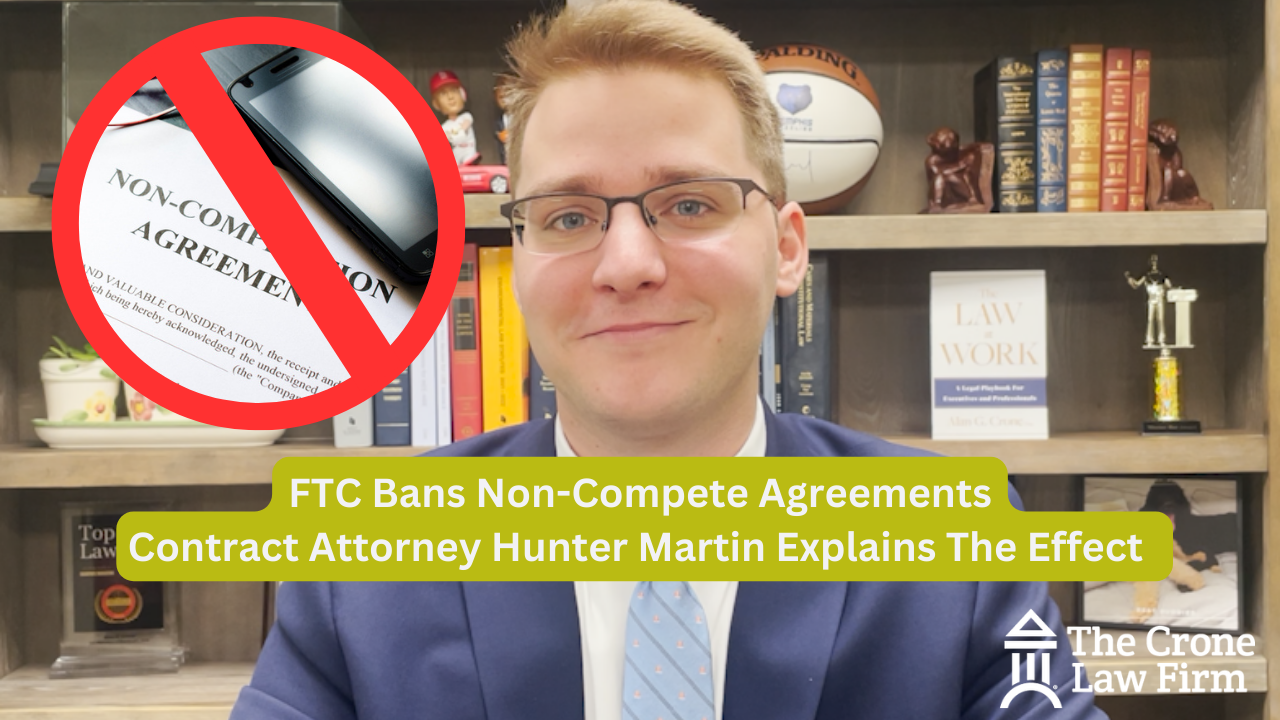On April 23, 2024, the Federal Trade Commission issued a final rule on the highly contested non-compete clauses and their enforceability. So, what does this mean, and how does this impact those already bound by non-compete clauses?
The Commission’s final rule takes effect 120 days after the rule is published in the Federal Register, and will ban employers from attempting to restrict employees by non-compete clauses entirely after the waiting period. As for regular employees already bound by non-compete clauses, their clauses will no longer be enforced after the 120-day waiting period. However, for executive employees (employees who are making more than $151,164 and are in a policy-making position), their non-competes will continue to be enforced, but future executive-level employees cannot be bound by similar non-compete clauses.
This decision is paramount to employee rights and freedoms, allowing for employees to freely choose when and where they work. Previously, non-compete clauses limited the freedom of an employee to leave their employment and seek comparable jobs elsewhere by limiting the geographical locations and positions a then-leaving employee could seek. This will greatly increase competition in the job-market, and the Commission expects this decision will result in increases in business formations, and increases in salaries in order to prevent employee’s from leaving for a better paying job. While executive-level employees will still be bound by non-compete clauses already entered into, the future for executives is far more promising now that they will not be restricted by non-compete clauses.
Although non-compete clauses will no longer be a concern for employees, employers will certainly attempt to restrict employees in similar ways by incorporating more restrictions in other restrictive covenants, including non-disclosure agreements and non-solicitation agreements. This is important to note, because while an employer may attempt to ‘work-around’ the Commission’s determination, they cannot prohibit or penalize an employee from seeking or accepting work for a competitor or similar business, and they cannot prohibit or penalize an employee for starting their own competing business. There is also a chance that the ruling could be challenged in court. We will keep you aware if that happens.
If your employment contract contains restrictive covenants such as non-solicitation or non-disclosure clauses, it is best to consult with an employment law attorney to understand what these restrictions mean, and whether or not the covenants are overly broad or in any way prohibit or penalize you for accepting work with a competitor or starting your own business. The attorneys at The Crone Law Firm, PLC are always available to assist you in making this determination and ensuring your rights as an employee are not infringed.


